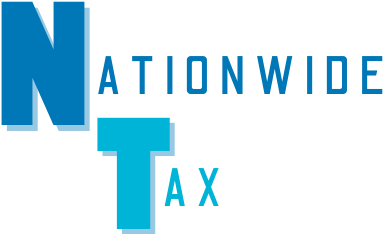Introduction
When it comes to tax preparation, many individuals and businesses in the United States find themselves facing a crucial decision: Should they hire a Certified Public Accountant (CPA) or utilize the services of H&R Block? Both options have their merits and drawbacks, and understanding the differences between the two can help you make an informed choice that best suits your needs.
Table of Contents
- Introduction
- Benefits of Using a CPA
- Drawbacks of Using a CPA
- Benefits of Using H&R Block
- Drawbacks of Using H&R Block
- Key Takeaways
- FAQs
- Conclusion
Benefits of Using a CPA
Hiring a CPA for your tax preparation needs offers several advantages:
- Expertise: CPAs undergo rigorous training and education to become licensed professionals in the field of accounting. They possess a deep understanding of tax laws and regulations, enabling them to maximize deductions and minimize your tax liability.
- Personalized Service: CPAs provide personalized attention and tailor their services to meet your specific needs. They can offer valuable advice and guidance, helping you make smart financial decisions throughout the year.
- Complex Tax Situations: If you have a complex tax situation, such as owning a business or multiple investment properties, a CPA’s expertise can be invaluable. They can navigate the complexities of your tax return and ensure compliance with all applicable laws.
- Audit Support: In the event of an audit, having a CPA by your side can provide peace of mind. They can represent you before the Internal Revenue Service (IRS) and handle the audit process on your behalf.
Drawbacks of Using a CPA
While CPAs offer numerous benefits, there are some potential drawbacks to consider:
- Cost: Hiring a CPA can be expensive, especially if you have a straightforward tax situation. Their fees are typically higher than what you would pay for using a tax preparation software or a service like H&R Block.
- Availability: During the busy tax season, CPAs may have limited availability, making it challenging to schedule an appointment. If you wait until the last minute to file your taxes, you may find it difficult to secure the services of a CPA.
- Location: Finding a reliable and competent CPA in your area may prove difficult, particularly if you live in a rural or remote location. This can limit your options and force you to rely on online or long-distance services.
Benefits of Using H&R Block
H&R Block is a well-known tax preparation company that offers several advantages:
- Accessibility: H&R Block has numerous locations across the country, making it easy to find an office near you. They also offer online tax preparation services, allowing you to file your taxes from the comfort of your own home.
- Affordability: H&R Block’s fees are often more affordable than those charged by CPAs. They offer various pricing options and packages, allowing you to choose the one that best fits your budget.
- Support: H&R Block provides customer support throughout the tax preparation process. Their knowledgeable professionals can answer your questions and guide you through any challenges you may encounter.
- Convenience: H&R Block offers a range of services beyond tax preparation, including financial planning and bookkeeping. This convenience can be particularly beneficial for small business owners or individuals with complex financial situations.
Drawbacks of Using H&R Block
While H&R Block offers many advantages, there are a few potential drawbacks to consider:
- Limited Expertise: While H&R Block’s tax professionals are knowledgeable, they may not possess the same level of expertise as a CPA. If you have a complex tax situation, you may benefit from the specialized knowledge and advice a CPA can provide.
- Handling of Audits: If you are audited by the IRS, H&R Block can assist you with the audit process. However, their level of support may not be as comprehensive as what a CPA can offer.
- Cookie-Cutter Approach: H&R Block uses a standardized approach to tax preparation, which may not take into account the unique aspects of your financial situation. If you require personalized attention or have specific tax planning needs, a CPA may be a better choice.
Key Takeaways
- A CPA offers expertise, personalized service, and can handle complex tax situations, but their services can be costly and availability may be limited.
- H&R Block provides accessibility, affordability, and customer support, but their expertise may be more limited, and their approach may be less tailored to your specific needs.
- Consider your individual circumstances, financial situation, and the complexity of your taxes when deciding between a CPA and H&R Block.
FAQs
1. Can H&R Block help me with my business taxes?
Yes, H&R Block offers tax preparation services for businesses. They can assist with various business tax forms, deductions, and credits.
2. Are CPAs only useful for complex tax situations?
No, CPAs can be beneficial for individuals with straightforward tax situations as well. They can provide expert advice and ensure compliance with all applicable tax laws.
3. How do I choose between a CPA and H&R Block?
Consider your specific needs, budget, and the complexity of your tax situation. If you require personalized attention or have complex financial circumstances, a CPA may be the better choice. If you value accessibility, affordability, and convenience, H&R Block may be a suitable option.
Conclusion
Deciding whether to use a CPA or H&R Block for your tax preparation needs requires careful consideration of your individual circumstances. While CPAs offer expertise and personalized service, H&R Block provides accessibility and affordability. Assess your needs, weigh the benefits and drawbacks, and choose the option that aligns best with your financial goals and priorities. Whether you opt for the expertise of a CPA or the convenience of H&R Block, remember that seeking professional assistance can help ensure accurate and efficient tax preparation.
